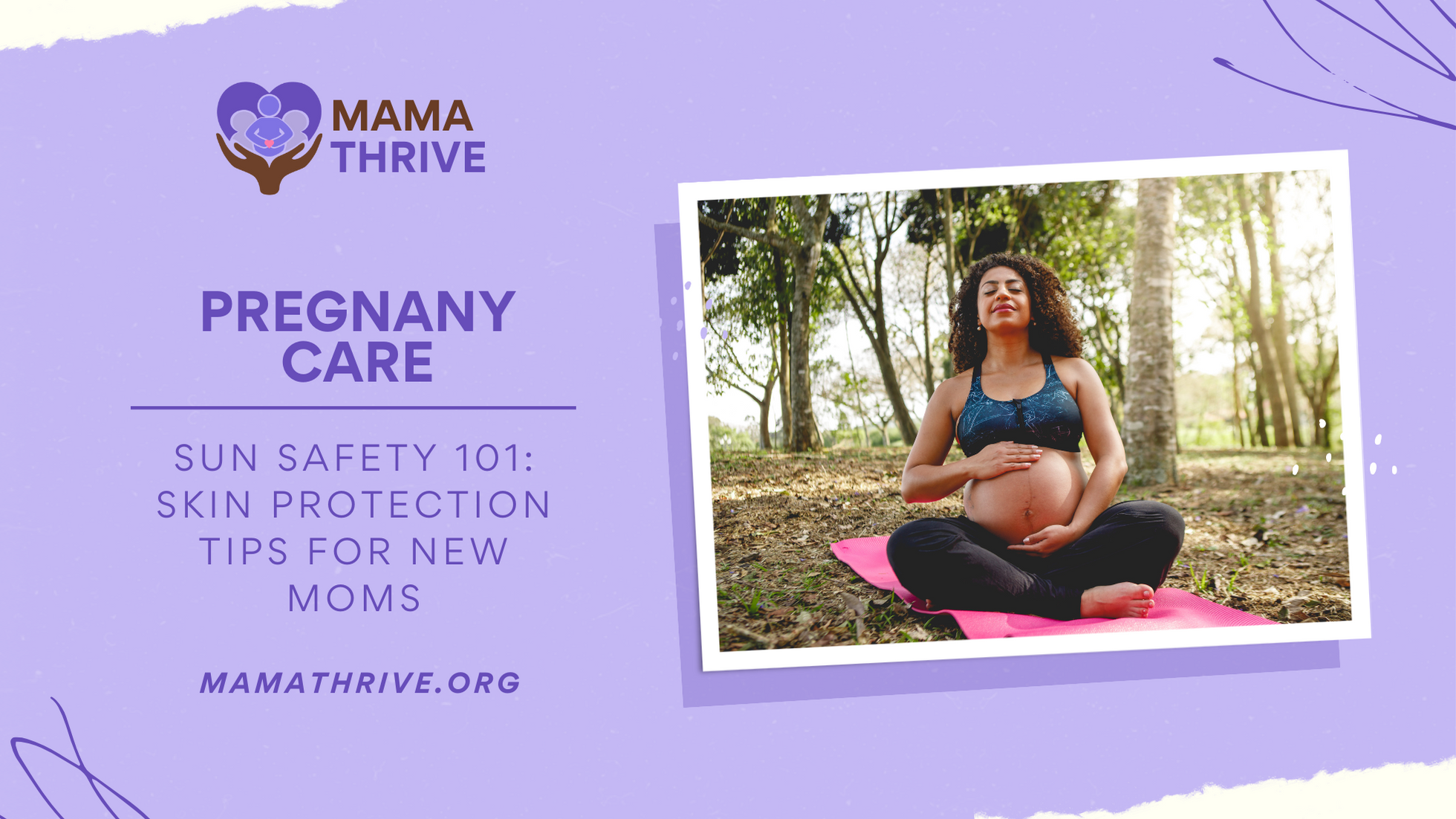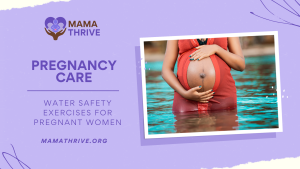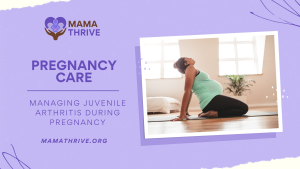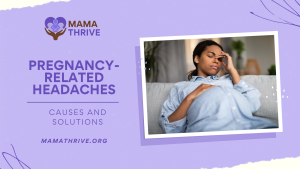As a new mom, you’re constantly juggling countless responsibilities, from feeding and diaper changes to making sure your baby is happy and healthy. Amidst all these priorities, it’s also crucial to look after your own health, particularly your skin. Changes in hormonal levels during and after pregnancy can make your skin more sensitive and vulnerable to the sun. Understanding skin protection tips for new moms is more important than ever to ensure that both you and your baby enjoy these precious moments safely.
What happens to your skin during pregnancy?
During pregnancy, the body undergoes profound hormonal shifts that impact various physiological aspects, including skin health. Elevated levels of hormones such as estrogen and progesterone can significantly affect the behavior of melanocytes, the cells responsible for producing melanin, the pigment that gives skin its color. This hyperactivity can lead to melasma, commonly referred to as “the mask of pregnancy,” which manifests as irregular, dark patches typically appearing on the face. These changes are compounded by an increase in skin sensitivity, making pregnant women and new mothers more vulnerable to sunburn and other skin irritations. As these conditions are influenced by hormonal levels, they often persist into the postpartum period, sometimes lasting for months, as the body slowly returns to its pre-pregnancy hormonal balance.
The American Academy of Dermatology’s research underscores the prevalence of these skin changes, noting that around 70% of pregnant women experience some form of skin alteration due to increased hormone levels. This heightened sensitivity to UV rays requires new mothers to adopt stringent sun protection measures to mitigate further skin damage. UV radiation can aggravate existing conditions such as melasma, which not only affects a woman’s physical appearance but can also contribute to emotional and psychological stress during a period already characterized by significant personal adjustments. The lingering sensitivity post-delivery means that even after giving birth, women must continue to protect their skin diligently to prevent exacerbation of these symptoms.
Given these challenges, it is essential for new mothers to prioritize their skin health, incorporating sun safety into their daily routine. Effective strategies include the liberal application of broad-spectrum sunscreen, wearing protective clothing, and seeking shade during peak sunlight hours. These preventive measures are not only crucial for managing immediate symptoms like sensitivity and discoloration but also play a key role in long-term skin health, helping to prevent the onset of more severe issues such as skin cancers. For new mothers, understanding and adapting to the changes in their skin can lead to better health outcomes and enhance their overall well-being during this transformative phase of life.
Top Sun Safety Tips for New Moms
Sun protection is crucial not only for preventing discomfort but also for avoiding long-term damage such as premature aging and skin cancer. Studies have shown that UV exposure is the most preventable risk factor for skin cancer. Given that more than 1 in 5 Americans will develop skin cancer by the age of 70, effective sun safety practices are essential.
Learn more: Skin Cancer Facts & Statistics – The Skin Cancer Foundation
1. Use Broad-Spectrum Sunscreen
Broad-spectrum sunscreens are essential as they provide protection against both UVA and UVB rays, each of which can significantly damage the skin in different ways. UVB rays are primarily responsible for sunburn and play the greatest role in causing skin cancers, whereas UVA rays penetrate deeper, contributing to skin aging and long-term damage. For effective protection, choose a sunscreen with an SPF of 30 or higher, which filters out about 97% of UVB rays. It’s important to apply the sunscreen generously to all exposed skin at least 15 minutes before going outdoors. This allows the sunscreen to absorb and begin protecting your skin. Remember to reapply every two hours, or more frequently if you’re swimming or sweating, to maintain optimal skin protection.
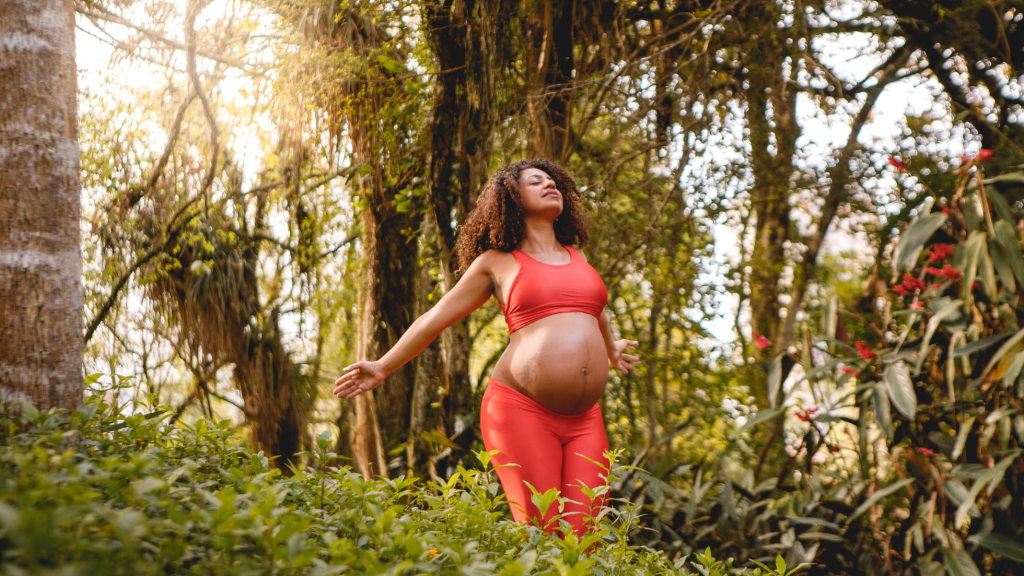
2. Seek Shade
The sun emits the strongest UV rays between 10 a.m. and 4 p.m., so it is crucial to seek shade during these hours. Utilizing umbrellas, stroller canopies, or simply sitting under trees can greatly reduce your UV exposure. Shade acts as a physical barrier, blocking or filtering harmful rays, which is particularly important for new moms whose skin may be more sensitive during and after pregnancy. By minimizing direct sun exposure during these peak hours, you can protect yourself and your baby from the potential short and long-term effects of sun damage.
Learn more about pregnancy and summer heat.
3. Wear Protective Clothing
Clothing can be one of the most effective forms of sun protection. Opt for long-sleeved shirts, pants, and wide-brimmed hats, which cover the skin and provide a barrier against UV rays. Fabrics with a tight weave offer better UV protection; some clothing even comes with a UPF (Ultraviolet Protection Factor) rating, which indicates exactly how much UV radiation the fabric can block. For new mothers, investing in UV-protective wear can be especially advantageous, providing an easy and effective way to reduce sun exposure when outdoor activities with the baby are unavoidable.
Learn more about SPF vs. UPF: What’s the Difference in Sun Protection?
4. Protect Your Eyes
Extended exposure to UV rays can also damage your eyes, leading to conditions such as cataracts and macular degeneration over time. It’s crucial to wear sunglasses that offer 100% UVA and UVB protection, which helps shield your eyes and the surrounding skin areas. Quality sunglasses can block most of the harmful rays and reduce the risk of eye diseases while also protecting the delicate skin around the eyes, which is particularly prone to aging from sun exposure.
5. Monitor Your Skin
Regular self-examinations of your skin can help you notice any new developments, such as moles, freckles, or unusual changes that could be indicative of skin cancer or other skin conditions. Monitoring and recognizing changes early on can be crucial for effective treatment. New moms should be aware that hormonal changes during and after pregnancy can lead to new skin tags or changes in existing moles. If you notice any changes, it’s important to consult with a dermatologist as soon as possible. Early detection and treatment are vital for maintaining skin health and preventing serious outcomes.
Beating the Heat in Florida
Florida’s intense sun and heat present significant challenges, especially considering the rising temperatures and UV exposure. July 2023 was marked as the hottest month on record in many parts of Florida, reflecting a broader trend of increasing heat due to climate change. Cities like Miami and Key West recorded exceptionally high average temperatures, pushing past previous records. This surge in heat is not only a discomfort but poses serious health risks, as the state observed numerous heat advisories during this period

The impact of this excessive heat is compounded by the high ultraviolet (UV) radiation levels that Florida experiences. UV radiation in Florida can be extremely high, which increases the risk of skin damage and related health issues. During the peak sun hours from 10 a.m. to 4 p.m., the UV index often reaches very high to extreme levels, making sun protection measures like using broad-spectrum sunscreen and wearing protective clothing crucial for residents and visitors alike
These conditions also affect the local environment and wildlife, with reports indicating that a marine heatwave has significantly raised water temperatures around the Florida Keys, leading to coral bleaching and die-offs. This is a clear indicator of the broader ecological impacts of prolonged heat periods, which also include severe drought conditions on the western coast of Florida, affecting water levels and agricultural productivity
Learn more about climate in Florida here.
Conclusion
While caring for a new baby, it’s easy to forget about your own health needs. However, maintaining a sun safety routine is not only simple but also essential for your well-being. By following these tips, new moms can enjoy their time outdoors with peace of mind, knowing they are protecting their skin and setting a healthy example for their children. Remember, skin protection is a crucial part of your health routine, and a little prevention goes a long way in ensuring a healthy, happy parenting journey.


